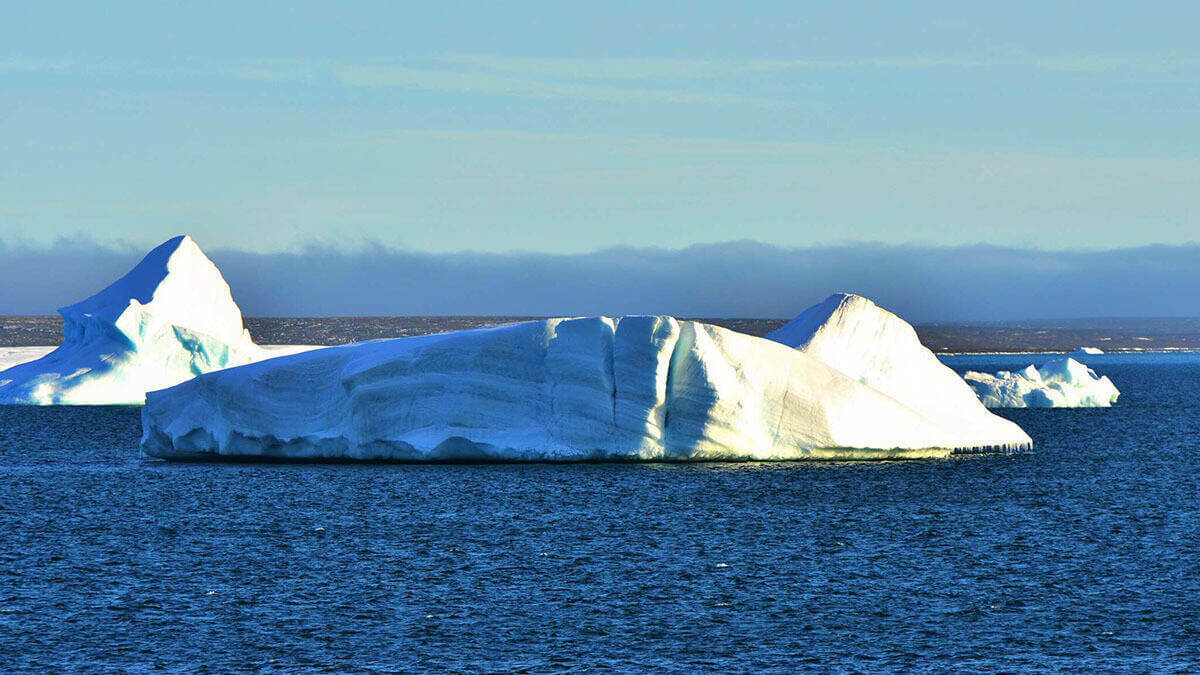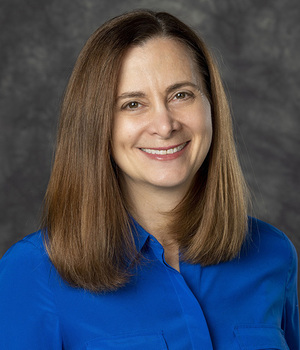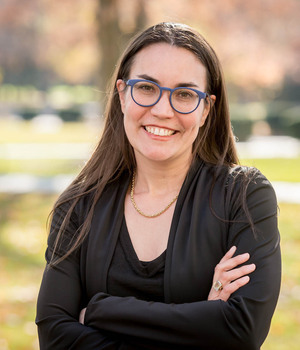Does Russia stand to benefit from climate change?

New research examines the effect of climate change on Russia and the country’s role in addressing global environmental challenges
“There’s a narrative out there about climate change that says there are winners and losers. Even if most of the planet might lose from the changing climate, certain industries and countries stand to benefit. And Russia is usually at the tip of people’s tongues, with Russian officials even making the claim that Russia is a potential winner.”
This portrayal, described by Debra Javeline, associate professor of political science at the University of Notre Dame and lead author on the recently published study “Russia in a changing climate,” was debated by her 16 co-authors — all Russia specialists and members of the Program on New Approaches to Research and Security in Eurasia (PONARS), a multinational cohort of academics from North America, Europe and post-soviet Eurasia.

The PONARS scholars, including Susanne Wengle, also an associate professor of political science at Notre Dame, studied the effects of climate change on Russia and Russia’s role in global efforts to combat climate change or obstruct climate action.
“We asked ourselves,” Javeline said of her research team, “does Russia stand to benefit from climate change? Are the claims made by the Russian government officials accurate in that it does benefit them?”
The PONARS network includes social scientists of different disciplinary backgrounds, allowing each co-author to contribute analysis of Russia in their respective fields, including agriculture, international affairs, the changing Arctic, public health, civil society and governance.
Drawing on their collective expertise and a comprehensive literature review, the researchers found that Russia is already suffering from a variety of climate change impacts — despite the government’s positive spin — and is ill-prepared to mitigate or adapt to those climate impacts. And, as the rest of the world transitions to renewable energy sources, Russia’s fossil-fuel-dependent government is not willing or ready to make alternative plans for the country, changes that could potentially benefit the whole of their society.
“The future of Russia is politically and economically interdependent with the future of the climate,” she said. “If we have any hope of seeing a peaceful Russia that can rejoin the international community with a more responsive government, then we can’t talk about one without the other.”
But while Russia continues to wage a carbon-intensive war in Ukraine after a full two years, it remains “increasingly isolated from the international community and its efforts to reduce greenhouse gas emissions,” the researchers wrote.
The cause for concern lies in the fact that not only is Russia considered the world’s largest country, occupying more than half the Arctic Ocean coastline, but it is also warming four times faster than Earth as a whole and is a primary emitter of greenhouse gases, according to the PONARS study.

Environmental impacts already occurring in Russia include flooding, heat waves, drought and wildfires that affect not only communities, but agriculture, forestry and water resources as well. “Russia is one of the world’s most important producers and exporters of grains,” said Wengle, an expert on Russian agriculture. “What this means is that the effects of climate change on Russian farms are a concern not only for Russians, but for everyone concerned with global markets for commodity crops and global food security.”
Global warming has had a huge influence on Russia’s permafrost, which is now thawing at alarming rates. What was once considered permanently frozen, stable ground is now defrosting, shifting and causing tremendous damage. The study pointed to increased flooding, landslides, caving or sinking of ground that supports existing infrastructures — resulting in cracked foundations and compromised shelters.
“Some Russian cities in high-latitude regions report infrastructure damage from thawing permafrost and soil instability for up to 80 percent of buildings and for pipelines,” the researchers discovered.
Russian leadership, however, interprets these climate impacts self-servingly and encourages its citizens to accept them as benefits, according to the PONARS scholars. For example, while Russian scientists warn about extreme temperatures and decreased Arctic sea ice, the Russian government touts a year-round Arctic sea route and a more livable climate overall. And although Russian climatologists study the effect of climate change, there are limited policies in place to reduce the vulnerability of some regions to climate impacts, and generally little adaptation planning and even less implementation of actual adaptations.
The researchers found that there is also a real climate leadership deficit in Russia and an absence of commitment to mitigate and adapt. “No top political leader champions a climate agenda,” they proclaimed. “Those in the highest positions of power demonstrate silence or denial.”
Furthermore, Russia’s full-scale invasion of Ukraine has exacerbated the climate emergency. “The humanitarian disaster is of the utmost importance — the number of deaths and structures that were destroyed — but the collateral damage is intense destruction to the atmosphere,” Javeline noted.
The war has brought irreparable damage to the global climate from increased military emissions, which the researchers explain as taking the form of “potentially several million extra tons of carbon dioxide equivalent.” Military operations have all had a harmful effect on the environment by adding toxic chemicals and hazardous waste into the air and water supplies.
The PONARS study serves as a framework to identify gaps in research. In particular, the scientists believe that more research is needed on the political dimensions of Russia in our changing climate — namely, taking a closer look at the country’s centralized political system and how it handles policy challenges related to climate change.
Javeline and Wengle added that the researchers hope to improve understanding of climate issues affecting Russia so that when Russian leadership does decide to acknowledge the country’s precarious position in a changing climate, there will be a reliable base of knowledge to assist them with efforts to mitigate and adapt.
Contact: Tracy DeStazio, associate director of media relations, 574-631-9958 or tdestazi@nd.edu
Latest Colleges & Schools
- ‘Prebunking’ false election claims may boost trust in electionsIn recent years, democracies worldwide have seen a growing erosion of trust in election outcomes and institutions, driven in part by fears of widespread fraud. New Notre Dame research finds that “prebunking” — providing accurate information before false claims spread — boosts trust in elections more effectively than traditional fact-checking.
- Justice Amy Coney Barrett to deliver Center for Citizenship and Constitutional Government lectureAmy Coney Barrett, associate justice of the Supreme Court of the United States, will speak at the University of Notre Dame at 4 p.m. Sept. 12 in the Leighton Concert Hall of the DeBartolo Performing Arts Center.
- Three Notre Dame researchers win NEH grants for humanities-based projectsDavid Hernandez, the Eli J. and Helen Shaheen Associate Professor of Classics, and Morgan Munsen, senior research and partnerships program manager at the Nanovic Institute for European Studies in the Keough School of Global Affairs, have each won an NEH Collaborative Research grant. Thomas A. Stapleford, associate professor in the Program of Liberal Studies, is leading a team that has been awarded a Humanities Research Center on Artificial Intelligence grant.
- Open-access database offers insights into U.S. congressional candidatesEach election cycle, thousands of candidates vie for seats in the U.S. House of Representatives and the Senate. Until now, there has been no comprehensive, publicly available resource cataloging what those candidates say about who they are or what they stand for. A new open-access database called CampaignView, created by researchers at the University of Notre Dame, offers researchers, journalists and educators a powerful tool to understand congressional elections.
- First impressions count: How babies are talked about during ultrasounds impacts parent perceptions, caregiving relationshipPsychologist Kaylin Hill studied the impact of a parent’s first impression of their baby during an ultrasound exam. The words used by the medical professional to describe the baby (positive or negative) influence how the parents perceive their baby, relate to them after they're born and even how that child behaves as a toddler. The research has broad implications for how we train medical professionals to interact with expectant parents, as well as how we care for parents during the perinatal period when they are most susceptible to depression.
- Prioritizing prenatal care may decrease low birth weight outcomes in The Gambia, Notre Dame research findsA new study co-authored by University of Notre Dame researchers highlights the importance of prenatal care for improving the health of mothers and newborns, providing evidence that can inform policy.













